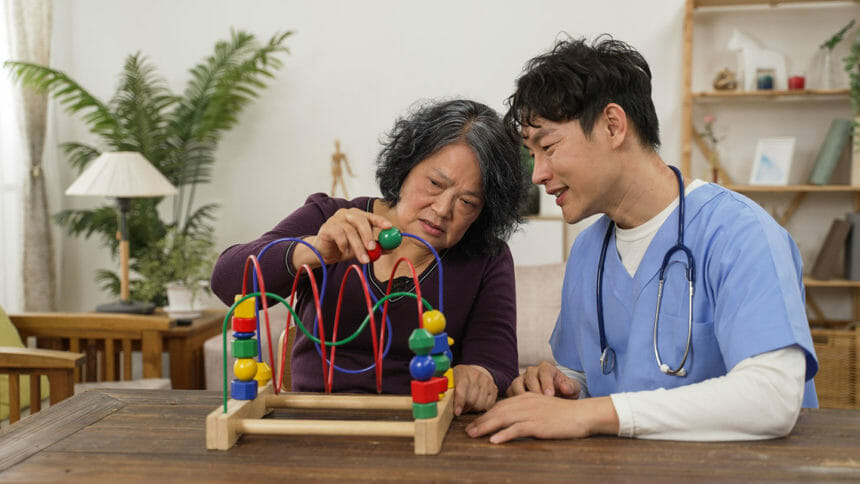
Nursing home residents with dementia who experience delusions and hallucinations have a lower quality of life. Moreover, these specific conditions require targeted treatments that take co-occuring neuropsychiatric symptoms into account, according to a new study.
Investigators analyzed quality-of-life scores for 971 nursing home residents with dementia as rated by proxies. When residents had both delusions and hallucinations, they were more likely to have a worsened quality of life, the researchers found. These symptoms had a negative effect on wellbeing independent of other neuropsychiatric symptoms that are frequently comorbid.
In addition, concurrent symptoms such as agitation, anxiety and depression contributed to worsening resident quality of life.
The findings underscore the urgent need to develop treatments to target psychotic symptoms in this population, the authors said. It is also important that clinicians take “a more holistic view” of how these symptoms impact residents’ well-being, they added. Chronic pain, for example, also showed a significant association with reduced quality of life, they noted.
“This is important when considering the optimal approach to interventions aiming to improve quality of life in people with dementia experiencing neuropsychiatric symptoms,” the authors concluded.
Participants were involved in a study of the Well-being and Health for People Living with Dementia program (WHELD).
Full findings were published in JAMDA.
Related articles:
Antipsychotic reduction in LTC leads to drug substitutions, more delusions diagnoses
Poorly controlled pain linked to disruptive behaviors in residents with dementia
Large-scale study to test cannabinoid use in Parkinson’s-related psychosis




